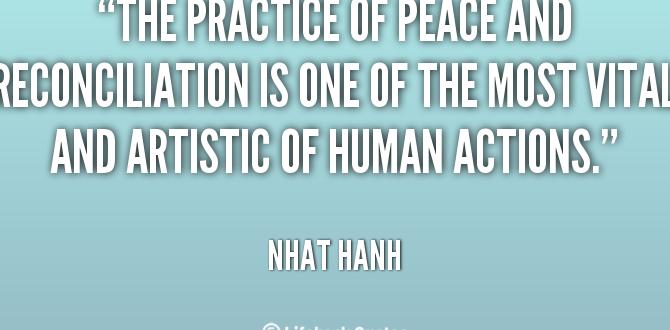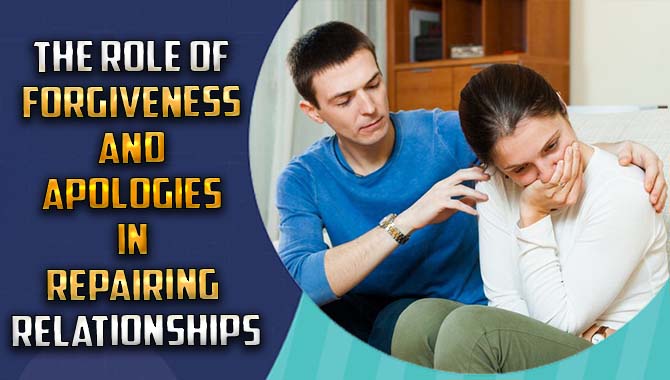Forgiving and apologizing are important in maintaining healthy friendships because they show that you are willing to work through conflict and move on.
It’s no secret that strong and lasting friendships are built on a foundation of trust, communication, and respect.
However, even the best of friends will inevitably find themselves in the midst of a disagreement or conflict at some point. What’s important is how you handle these situations.
Forgiveness and apologies are two key ingredients in maintaining healthy friendships. When you forgive someone who has wronged you, it shows that you’re willing to move past the conflict and continue the friendship.
And when you apologize for your own mistakes, it shows that you value the friendship enough to take responsibility for your actions.
Forgiveness and apologies aren’t always easy, but they’re essential in keeping any friendship strong. Next time you find yourself in a disagreement with a friend, remember the importance of these two things.
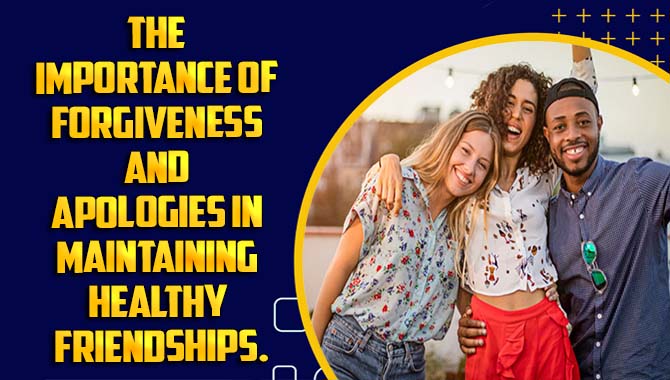
What Are The Benefits Of Forgiveness And Apologies In Friendships?
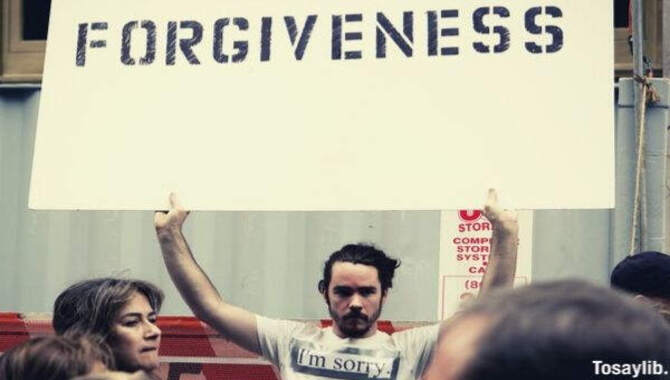
Forgiveness and apologies are important in friendships because they help maintain trust and communication. When it comes to friendships, it’s often said that it’s better to have loved and lost than to never have loved at all. This may be true, but that doesn’t mean that friendships are always easy. In fact, they can be quite complicated at times.
One of the most difficult aspects of friendships is dealing with conflict. It’s inevitable that friends will have disagreements from time to time. The important thing is how you handle these disagreements.
One way to handle conflict in friendships is through forgiveness and apologies. This can be a difficult thing to do, but it can be very beneficial for both parties involved. Forgiveness can help to repair the relationship and rebuild trust. It can also help to prevent future conflict.
Apologies can also help to repair the relationship and rebuild trust. They can also help to show that you’re willing to take responsibility for your actions. Both forgiveness and apologies require a certain amount of humility. You have to be willing to admit that you were wrong or that you made a mistake. This can be difficult to do, but it’s an important part of the process.
Forgiveness and apologies can be difficult, but they can be very beneficial for both parties involved. If you’re having difficulty with either of these, it may be helpful to talk to a trusted friend or family member about it. They may be able to offer some insight or guidance.
How Can Forgiveness And Apologies Help To Prevent Or Resolve Conflict In Friendships?

Forgiveness and apologies can help to prevent or resolve conflict in friendships by restoring communication and trust.
It’s no secret that even the best of friends can have disagreements. While it’s normal to have disagreements with friends, it’s important to know how to resolve them in a healthy way.
Forgiveness and apologies can help prevent or resolve conflict in friendships. Here’s how: Forgiveness can help prevent or resolve conflict in friendships by:
- Allowing you to move on from the hurt: When you forgive someone, you’re no longer holding onto the hurt they caused you. This allows you to move on from the conflict and hopefully move forward in your friendship.
- Helping you see the situation from their perspective: When you forgive someone, you’re able to see the situation from their perspective. This can help you understand their actions and hopefully prevent future conflict.
- Reducing stress and anxiety: Forgiving someone can reduce stress and anxiety. Holding onto anger and resentment can take a toll on your mental health, so forgiveness can be beneficial for both you and your friendship.
Apologizing can help prevent or resolve conflict in friendships by:
- Showing that you’re willing to take responsibility for your actions: When you apologize, you’re showing that you’re willing to take responsibility for your actions. This can help to resolve the conflict and rebuild trust in the friendship.
- Expressing remorse for your actions: A sincere apology shows that you’re sorry for your actions and the hurt you caused. This can help to repair the damage done by the conflict.
- Demonstrating a willingness to change: An apology shows that you’re willing to change your behavior in the future. This can help to prevent future conflict and build a stronger friendship.
While forgiveness and apologies aren’t always easy, they can be helpful in preventing or resolving conflict in friendships. If you’re struggling to forgive or apologize, consider talking to a therapist or counselor. They can help you work through the process and learn healthy ways to resolve conflict.
What Role Does Forgiveness And Apologies Play In The Overall Health Of A Friendship?

Forgiveness and apologies play an important role in the overall health of a friendship.
Forgiveness is often seen as a sign of weakness, but in reality, it is a strength. It takes a lot of courage to forgive someone, especially if they have hurt you deeply.
The ability to forgive is not only important in our personal relationships, but also in our professional ones. Learning to forgive can help improve our mental and physical health, as well as our overall well-being.
There are many benefits to forgiveness, including:
- It can help reduce stress and anxiety
- It can help improve our immune system
- It can help improve our cardiovascular health
- It can help us to sleep better
- It can help us to feel happier and more optimistic
It can help us to have more fulfilling relationships
So,
How Can We Learn To Forgive?
Here are some tips:
- Acknowledge your feelings
- It’s important to acknowledge how you’re feeling, rather than trying to bottle everything up. Recognising that you’re angry, hurt or upset is the first step to forgiveness.
- Talk about what happened
- If you’re able to talk to the person who hurt you, it can be helpful to do so. This can help you to understand their side of the story and to see the situation from their perspective.
- Let go of your anger
- Anger is a normal emotion, but it’s important not to let it take over. If you’re able to let go of your anger, it will be easier to forgive.
- Practice forgiveness
- Forgiveness is a choice, and it’s something that you can practice. The more you forgive, the easier it will become.
- Seek professional help
If you’re finding it difficult to forgive, it might be worth seeking professional help. A therapist can assist you in exploring your feelings and working through the process of forgiveness.
Forgiveness is an important part of our overall health and wellbeing. It can help to reduce stress, improve our immune system and cardiovascular health, and make us feel happier and more optimistic. If you’re finding it difficult to forgive, seek professional help.
How Can Forgiveness And Apologies Help To Maintain Communication And Trust In Friendships?
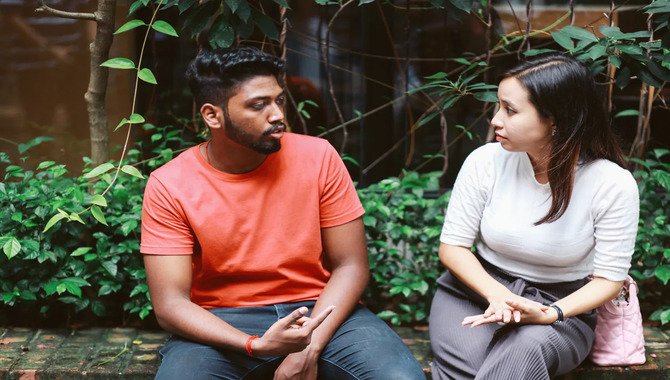
Forgiveness and apologies can help to maintain communication and trust in friendships by letting the other person know that you still care about them and want to work things out.
It’s no secret that friendships can be difficult to maintain. We’re all human, after all, and we all make mistakes. But, when those mistakes are accompanied by forgiveness and apologies, it can help to maintain communication and trust in the friendship.
Forgiveness is a choice. It’s not always easy, but it’s important. When we forgive someone, we’re choosing to let go of the anger and hurt we feel.
We’re also choosing to move on from the situation. This doesn’t mean that we forget what happened or that we’re okay with what happened. It just means that we’re choosing to forgive.
Apologies are also important. They’re a way of taking responsibility for our actions and admitting that we were wrong. By apologizing, we’re showing our friend that we value their friendship and that we’re willing to work to fix the situation.
Forgiveness and apologies can go a long way in maintaining communication and trust in friendships. They’re not always easy, but they’re worth it.
FAQs
1.What Are Some Signs That A Friendship May Need Forgiveness Or An Apology?
Ans: If a friend has hurt your feelings, you may notice that you feel uncomfortable around them or that you are holding onto anger.
If a friendship feels strained or distant, it may be a sign that forgiveness is needed.
Other signs that forgiveness may be necessary in a friendship include avoiding eye contact, not wanting to spend time together, and feeling like you are always on edge around the other person.
If you are unsure whether or not forgiveness is needed, it is always a good idea to talk to your friend about what is going on.
2.How Can Someone Go About Asking For Forgiveness Or Apologizing In A Friendship?
Ans: There is no one way to ask for forgiveness or apologize in a friendship. It depends on the situation and the relationship between the friends.
Sometimes a simple apology is enough, while other times it may be necessary to have a more in-depth conversation.
It is important to be honest and sincere when asking for forgiveness, and to listen to what the other person has to say.
3.What Are Some Common Misunderstandings About Forgiveness And Apologies In Friendships?
Ans: Some people think that forgiveness and apologies are the same thing, but they are actually two different things.
Forgiveness is when you let go of the anger and hurt that you feel towards someone who has wronged you, while an apology is when the person who wronged you admits their mistake and expresses regret.
People also often think that they need to forgive someone in order to maintain a friendship, but this is not always the case.
It is possible to remain friends with someone even if you have not forgiven them for something they did, as long as you are able to communicate openly about the issue and respect each other’s boundaries.
4.What Are Some Ways To Forgive And Apologize That Are Not Effective In Friendships?
Ans: There are many ways to forgive and apologize that are not effective in friendships. Some ways to forgive and apologize that are not effective in friendships include:
- Forgiving without an apology: If you forgive someone without them apologizing, it can come across as insincere. The other person may not believe that you truly forgive them.
- Apologizing without taking responsibility: If you apologize but do not take responsibility for your actions, the other person may not believe that you are truly sorry.
- Forgiving but not forgetting: It is important to forgive someone, but it is also important to remember what they did. Otherwise, they may think you have forgiven them and they can do whatever they want.
- Apologizing but not changing your behavior: If you apologize but do not change your behavior, the other person may not believe that you are truly sorry.
Conclusion
It is important to forgive and apologize to maintain healthy friendships because it keeps the communication lines open and shows that you are willing to work through conflicts.
It also shows that you value your friendship and are willing to make things right.
If you still have any questions about forgiveness and apologies in maintaining healthy friendships, feel free to comment below.

